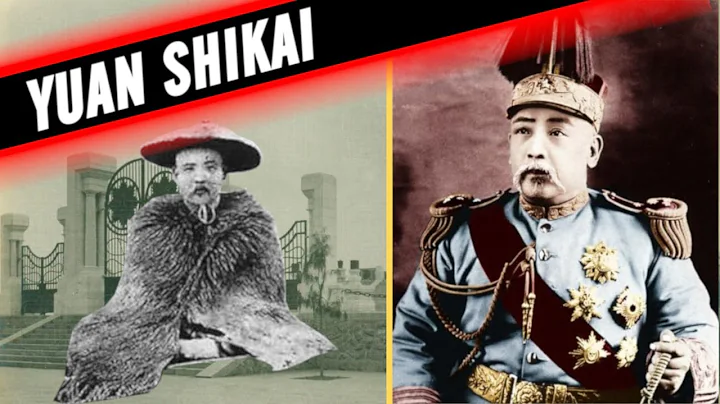On July 12 of the lunar calendar in 1883, which is the 9th year of Guangxu in the Qing Dynasty, a scholarly family in Huize County, Yunnan Province, although not rich, but attaches importance to children’s education, was born into a young boy whose father was A Juren, he hoped that this son could accomplish great things in the future and be a wise man, so he named him Jiyao. Under the influence of family style of writing, Tang Jiyao was very clever when he was a child, and he was well-versed in literature and history. He is extremely proficient in traditional old learning, he is also magnificent, suave and ambitious, just like a young talent, destined to do something in a specific historical period.

In the twenty-ninth year of Guangxu (1903), Tang Jiyao was admitted to the Qing Dynasty as a scholar because of his aspirations to the military. So he went to study at Zhenwu School in Tokyo, Japan. During his stay in Japan, Tang Jiyao was diligent and studious, and his grades were extremely good. Then he entered the Japanese Army Non-commissioned Officer School, and then was promoted to the sixth period of the Japanese Army Non-commissioned Officer School for further studies. In the past few years, Tang Jiyao was full of spirits when he returned from his studies. He made a special trip to the ancient battlefields of Northeast Japan and Russia to pay his respects. His sentimental feelings added a bit of ambition and sadness. After returning to China, Tang Jiyao served as the first battalion band of the Seventy-fourth Standard of the 37th Association of the Nineteenth Town of the Army. From then on, he embarked on a life in the army and a ruined military career.
In 1915 AD, Yuan Shikai, President of the Republic of China, began to restore and proclaim emperor. Upon hearing this news, Tang Jiyao, the governor of Yunnan at the time, publicly opposed Yuan’s proclaiming emperor, calling for the opposition to Yuan and uniting with Cai E, Li Liejun and others. National Defence Movement. Tang Jiyao and others formally declared Yunnan's independence and fired the first shot of defending the country against Yuan in the southwest border. Yuan Shikai also died in internal and external troubles. After the National Defence War, he served as the governor and governor of Yunnan. His personal reputation has also reached its peak. Later, it launched a campaign against the Beiyang government to defend the Dharma, and it did meritorious service in maintaining the republic. In the seventh year of the Republic of China (1918), he was promoted to the president of the French Army and served as the commander-in-chief of the Yasukuni Allied Forces in the eight provinces of Yunnan, Sichuan, Guizhou, Hubei, Henan, Shaanxi, Hunan and Fujian.

In the 9th year of the Republic of China, the Sichuan-Yunnan War broke out. Zhao Youxin, commander of the Second Army of the Sichuan-Dian Army, was killed, and Gu Pinzhen, commander of the First Army of the Sichuan-Dian Army, led his troops back to Yunnan. With the support of the Sichuan Army, they advanced into Kunming. Tang Jiyao was unstable internally, so he resigned by power. In the 16th year of the Republic of China, Hu Ruoyu, Long Yun, Zhang Ruji, and the guard ambassador united to impose military admonitions on Tang Jiyao and threatened to resign. Tang Jiyao, who died of illness on May 23 of the same year, at the age of 44, was well-known for the time being in the southwest and completed his life.

Judging from his life track and his deeds, Tang Jiyao is a relatively idealistic political figure. During his study in Japan, Tang Jiyao’s ideal was to "successfully make China prosperous, surpass Europe and the United States, overlook the great powers, and be a Chinese man of the twentieth century. How to live and die! It can be seen that although he is a warlord, he can also be patriotic. Heart.
![[Full Movie] Rise of Tang Dynasty 1 | Chinese History & War Action film HD - DayDayNews](https://i.ytimg.com/vi/_C0q_Lek3jA/hq720.jpg?sqp=-oaymwEcCNAFEJQDSFXyq4qpAw4IARUAAIhCGAFwAcABBg==&rs=AOn4CLA9rePuhzXKdGcDwUFZ1RNN3GynaQ)
![[Full Movie] Rise of Tang Dynasty 1 | Chinese History & War Action film HD - DayDayNews](https://cdn-dd.daydaynews.cc/img/play.svg)



![[Inaccurate] The Warlord Era: Every Other Day - DayDayNews](https://i.ytimg.com/vi/olJiyaSYeUI/hq720.jpg?sqp=-oaymwEcCNAFEJQDSFXyq4qpAw4IARUAAIhCGAFwAcABBg==&rs=AOn4CLA084wIrVeUh-3oPiQsOgFYhfQWkg)

![[FULL] 【The Jinggangshan】EP.01(History about CPC's Revolution)| China Drama - DayDayNews](https://i.ytimg.com/vi/sEhR69PJQ8k/hq720.jpg?sqp=-oaymwEcCNAFEJQDSFXyq4qpAw4IARUAAIhCGAFwAcABBg==&rs=AOn4CLBVHqZfy-GMouvrkAaU1MRPQSiWIw)













